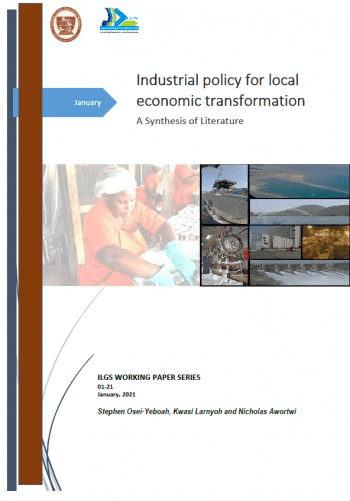
This Working Paper reviews the literature on industrial policies and discusses the evolution of industrial polices in Ghana and why the government needs to support the One District One Factory (1D1F) for local economic transformation in Ghana.

This Working Paper reviews the literature on industrial policies and discusses the evolution of industrial polices in Ghana and why the government needs to support the One District One Factory (1D1F) for local economic transformation in Ghana.